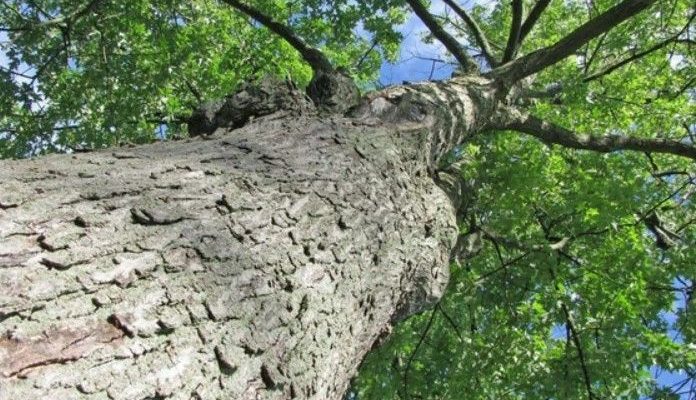Believing the committee has been taking too long to reach a resolution, an East Kent councilor is calling for the removal of a temporary clear-cutting bylaw.

Believing the committee has been taking too long to reach a resolution, an East Kent councilor is calling for the removal of a temporary clear-cutting bylaw.
Advertisement 2
Coun. Steve Pinsonneault entered a notice of motion Monday night on the issue, which will return for a debate and vote at a future meeting. There is no discussion after notices of motion.
Last year, the natural heritage committee of the whole, tasked with improving tree cover and environmental sustainability in Chatham-Kent, paused its work, noting a new council was set to take over after the municipal election.
Though the committee was created in 2021, the clear-cutting issue goes back more than a decade.
After Monday’s meeting, Pinsonneault said he thinks it’s time for the municipality to return to the previous natural heritage strategy.
“Basically, the ag community wants to see this come to a head, one way or the other,” he said. “If there had been an end date there, we wouldn’t have had to do this.
Advertisement 3
“The agricultural community, part of their business plan is to be able to manage their trees. And they are good stewards of the land. . . . This is just something that’s been lingerieing for over two years.”
Committee of the whole meetings, which took place virtually due to the pandemic, featured presentations on such topics as the latest tree cover statistics, watershed natural heritage mapping, planning regulations and Chatham-Kent’s official plan, and also reviewed community engagement to date.
It’s almost a year into the new council term, Pinsonneault noted, and he believes it’s time to deal with the matter.
“It’s a tough balance, but I honestly think that (landowners) are responsible enough that they don’t need this in place,” he said.
Advertisement 4
“We’ve done consultation. . . for 10 years. How much more can you do? Like, we’re there. It’s time to make a decision.”
However, Wallaceburg Coun. Aaron Hall, who chairs the natural heritage committee, said the work is not over.
He said council already has committed to leading by example to reduce Chatham-Kent’s climate footprint, enhancing community resilience to climate change impacts and preserving natural heritage.
“As chair, I felt it was imperative to wait until the new term of council had approved our council term priorities before reigniting the process,” he told The Daily News Tuesday. “Now that council has collectively, and unanimously, supported our priorities for the upcoming term and affirmed our commitment, now is the time to carry on the natural heritage work by the committee.”
Advertisement 5
Hall plans to bring a notice of motion at the Sept. 18 planning meeting, which would then be on the agenda for the Sept. 25 meeting, to start a “clearly illustrated path forward” for the natural heritage work.
“It will be open and rooted in transparency, focused on creating public consultation opportunities for every Chatham-Kent resident and will be informed and supported by the tremendous amount of work, data and information gathered during our last term of council,” he said, admitting there is a wide spectrum of views on the issue.
“It’s essential for our council to be diligent and to show leadership to all of the residents in our community, and ensure we are following best practices on how to properly tackle important and challenging issues.”
Advertisement 6
The chair added that some form of regulation is needed concerning clear-cutting in order to prevent “irreparable damage” to tree cover.
“Council got it right in 2021 to put the temporary bylaw in place in order for us to safely have these important conversations. Now is certainly not the time to remove this regulation,” Hall said.
“Is the current bylaw that we have in place the long-term solution? Absolutely not. However, we need to come together as a community and as a council and take a critical, open-minded and focused look on what the regulatory piece will look like moving into the future, along with the incentive and education elements, which are cumulatively the best practices for dealing with natural heritage policy creation.”

Comments
Postmedia is committed to maintaining a lively but civil forum for discussion and encourages all readers to share their views on our articles. Comments may take up to one hour for moderation before appearing on the site. We ask you to keep your comments relevant and respectful. We have enabled email notifications—you will now receive an email if you receive a reply to your comment, there is an update to a comment thread you follow or if a user you follow comments. Visit our Community Guidelines for more information and details on how to adjust your email settings.
Join the Conversation